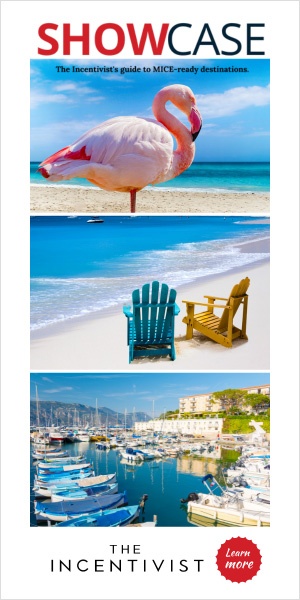Global DMC Partners’ Q3 2025 Meetings & Events Pulse Survey, released yesterday, reveals that MICE planners around the world continue to be challenged by higher costs, tighter budgets, and limited hotel availability.
The survey drew 151 responses from meeting and event professionals worldwide, with the majority based in the United States and Canada (75 percent), Continental Europe (12 percent) and the United Kingdom (five percent). Most respondents were agency and third-party planners (44 percent), and nearly half brought more than 25 years of industry experience (44 percent).
Asked to rank their top challenges, U.S. and Canadian planners put cost increases first, budget management second, and hotel negotiations third. International respondents put budget management first, rising costs second, and delays in decision-maker approvals third.
The survey respondents’ top strategies for staying ahead of rising program costs include:
- Cutting back on A/V (51 percent at least sometimes)
- Shifting to second- or third-tier destinations (49 percent sometimes)
- Contracting earlier (43 percent sometimes, 26 percent most of the time)
Regional approaches differ; U.S. and Canadian planners are more likely to trim A/V and use car-share transfers, while international planners extend leisure time or shorten program days to manage spend.
Other highlights of the survey include:
- 33 percent of U.S. and Canadian planners are seeing budget increases versus 19 percent who are seeing decreases
- 32 percent of Continental Europe and U.K. planners report budget costs versus 18 percent who are seeing gains
- Gen X still makes up the largest share of the MICE workforce (44 percent), but their presence slipped six points from last quarter. Millennials (ages 29 to 44) account for 22 percent and younger talent (Gen Z) are slowly gaining ground.
- 62 percent of planners now use AI in daily work, up 14 percent over the past year. Chatbots remain the go-to tool, but AI-powered note takers are surging in popularity, with usage jumping 12 percent since last quarter.
- Over 70 percent of planners say they face higher accommodation rates “most” or “all of the time,” with F&B and A/V prices also taking a toll. They are also challenged by rigid contracts, hidden fees, and long response times, and report growing frustration, particularly around resort fees, service charges, and mandatory in-house A/V.
- approximately a third of planners report 11 to 20 percent price hikes in the hotels/venues and F&B categories (33 percent for hotels/venues, 38 percent for F&B), with many also seeing 21 to 30 percent increases.
- 32 percent of respondents now cite 11 to 20 percent increases in airfare costs, up from 26 percent last quarter
- 51 percent of respondents report event attendance year-over-year, while 26 percent see declines and 22 percent note increases. The most common drivers of declining numbers are tied to economic headwinds, with budget cuts and company travel restrictions cited by more than three-quarters of respondents, followed by economic uncertainty and rising travel costs.
- When choosing destinations, the top criteria are costs (accommodation, F&B, airfare), quality of the property/experience, and flight availability.
- Incentive programs demand longer lead times: 41 percent are planned 10 to 12 months in advance, and another 25 percent begin 13 to 24 months out. By contrast, meetings and conferences are planned on tighter windows, with nearly half falling into the four- to nine-month range. Planners flagged the tension between “ideal” versus “real” timelines and cited the critical role DMCs play in bridging the gap when plans shift.
- Most meetings and events teams remain structurally stable (59 percent report no changes in the past year), though nearly one in five experienced reorganizations without layoffs, and smaller groups saw staff reductions or outsourced roles. Some reported growth, with new hires and expanded leadership teams.
- Nearly 43 percent of planners say stress has increased, often due to heavier workloads, short lead times, and rising client demands. Organizations are responding with flexible or remote work options, PTO (paid time off) encouragement, wellness initiatives, and professional development, while planners themselves are prioritizing exercise, boundaries, time off, mindfulness, and family life to stay resilient.
For the full results of GDP’s Meetings & Events Pulse Survey, visit https://globaldmcpartners.com/q3-2025-pulse-survey-report/









